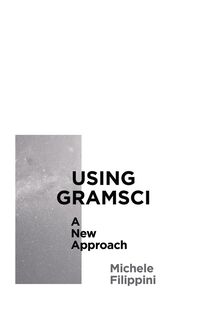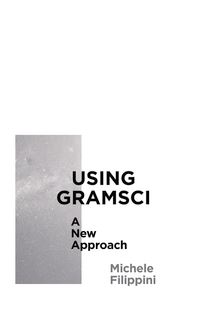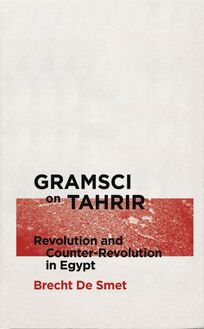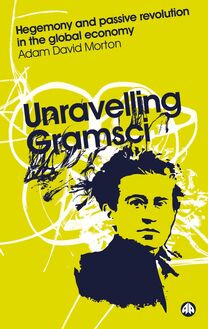-
 Univers
Univers
-
 Ebooks
Ebooks
-
 Livres audio
Livres audio
-
 Presse
Presse
-
 Podcasts
Podcasts
-
 BD
BD
-
 Documents
Documents
-
- Cours
- Révisions
- Ressources pédagogiques
- Sciences de l’éducation
- Manuels scolaires
- Langues
- Travaux de classe
- Annales de BEP
- Etudes supérieures
- Maternelle et primaire
- Fiches de lecture
- Orientation scolaire
- Méthodologie
- Corrigés de devoir
- Annales d’examens et concours
- Annales du bac
- Annales du brevet
- Rapports de stage
La lecture à portée de main
Vous pourrez modifier la taille du texte de cet ouvrage
Découvre YouScribe en t'inscrivant gratuitement
Je m'inscrisDécouvre YouScribe en t'inscrivant gratuitement
Je m'inscrisEn savoir plus
Vous pourrez modifier la taille du texte de cet ouvrage
En savoir plus

Description
This book places Gramsci’s ideas within the linguistically influenced social theory of the twentieth century. It summarizes some of the major ideas of Ferdinand de Saussure, Ludwig Wittgenstein, language philosophy and post-structuralism in relation to Gramsci’s position. By paying great attention to the linguistic underpinnings of Gramsci's Marxism, Language and Hegemony in Gramsci shows how his theorization of power, language and politics address issues raised by post-modernism and the work of Michel Foucault, Jacques Derrida, Chantal Mouffe, and Ernesto Laclau.
Introduction
1. Language And Social Theory: The Many Linguistic Turns
2. Linguistics And Politics In Gramsci's Italy
3. Language And Hegemony In The Prison Notebooks
4. Gramsci's Key Concepts With Linguistic Enrichment
5. Postmodernism, New Social Movements And Globalization: Implications For Social And Political Theory
Bibliography
index
Sujets
Informations
| Publié par | Pluto Press |
| Date de parution | 20 juillet 2004 |
| Nombre de lectures | 1 |
| EAN13 | 9781783716623 |
| Langue | English |
| Poids de l'ouvrage | 1 Mo |
Informations légales : prix de location à la page 0,1498€. Cette information est donnée uniquement à titre indicatif conformément à la législation en vigueur.
Extrait
Language and Hegemony in Gramsci
READING GRAMSCI General Editor: Joseph A. Buttigieg
Also available
GRAMSCI, CULTURE AND ANTHROPOLOGY AN INTRODUCTORY TEXT Kate Crehan
Language and Hegemony in Gramsci
Peter Ives
First published 2004 by Pluto Press 345 Archway Road, London N6 5AA
www.plutobooks.com
Fernwood Publishing Site 2A, Box 5 8422 St. Margaret’s Bay Rd. Black Point, Nova Scotia B0J 1B0 and 324 Clare Avenue Winnipeg, Manitoba R3L 1S3 www.fernwoodbooks.ca
© Peter Ives 2004
The right of Peter Ives to be identified as the author of this work has been asserted by him in accordance with the Copyright, Designs and Patents Act 1988.
British Library Cataloguing in Publication Data
A catalogue record for this book is available from the British Library
ISBN (Pluto) 978 0 7453 1665 9 paperback ISBN (Fernwood) 1 55266 139 3 ISBN (Pluto) 978 1 7837 1662 3 ePub ISBN (Pluto) 978 1 7837 1663 0 Mobi
Library of Congress Cataloging in Publication Data Ives, Peter, 1968–
Language and hegemony in Gramsci / Peter Ives. p. cm. — (Reading Gramsci)
Includes bibliographical references. ISBN 0–7453–1666–2 — ISBN 0–7453–1665–4 (pbk.)
1. Gramsci, Antonio, 1891–1937—Views on sociolinguistics.
2. sociolinguistics. I. Title. II. Series
P85. G72I93 2004 335.43’092—dc22 2004006313
National Library of Canada Cataloguing in Publication Ives, Peter R., 1968–
Language and hegemony in Gramsci / Peter Ives. Includes bibliographical references. ISBN 1–55266–139–3
1. Gramsci, Antonio, 1891–1937—Knowledge—Linguistics.
2. Gramsci, Antonio, 1891–1937—Contributions in political science. 3. Communism and linguistics. 4. Language and languages—Political aspects. 5. Political science. I. Title.
HX298.7.G73I85 2004 335.43’092 C2004-902139-7
10 9 8 7 6 5 4 3 2 1
Designed and produced for Pluto Press by Chase Publishing Services, Fortescue, Sidmouth, EX10 9QG, England Typeset from disk by Newgen Imaging Systems (P) Ltd, Chennai Printed and bound on demand in the EU by CPI Antony Rowe, England
Contents
Reading Gramsci Joseph A. Buttigieg
Acknowledgments
Abbreviations
Introduction
Language and hegemony in Gramsci
The pervasiveness of Gramsci’s hegemony
Approaching language and hegemony
Overview
1. Language and Social Theory: The Many Linguistic Turns
Language, production and politics in the twentieth century
The many ‘linguistic turns’
Saussure’s structural approach to language
The structuralist turn towards language
Philosophy’s ‘linguistic turn’
The many other ‘linguistic turns’
Marxism and language
Conclusion
2. Linguistics and Politics in Gramsci’s Italy
Gramsci’s home, Sardinia
The Southern Question and the Risorgimento
The Language Question
Gramsci’s youth
‘Beyond the Wide Waters’
Gramsci’s linguistics
Italian linguistics
Bartoli’s polemic against the Neogrammarians
Idealist linguistics and Benedetto Croce
Summary of various approaches to Language
Gramsci and Esperanto
Conclusion
3. Language and Hegemony in the Prison Notebooks
Approaching the Prison Notebooks
Non-linguistic understandings of hegemony
Two broad themes in hegemony
Gramsci’s expansion of ‘politics’
Language, philosophy and intellectuals
Subalternity and fragmented ‘common sense’
Language, nation, collective popular will
Language and metaphor
The structures of language
Two grammars of hegemony
Spontaneous grammar
Normative grammar
Normative history in spontaneous grammar
Normative grammar and progressive hegemony
Conclusion
4. Gramsci’s Key Concepts, with Linguistic Enrichment
Passive revolution and ineffective national language
War of manoeuvre and war of position
War of position as passive revolution
National–popular collective will
War of position and new social movement alliances
Language as a model for the national–popular collective will
Hegemony, political alliances and the united front against Fascism
State and civil society
The history of state and civil society
The state
Conclusion
5. Postmodernism, New Social Movements and Globalization: Implications for Social and Political Theory
Postmodernism, language and relativism: is all the world a text?
Nietzsche, Saussure and Derrida on language
Language and relativism in Gramsci
Foucault, language and power
Power in Gramsci and Foucault
New social movements and discourse: Laclau and Mouffe
Laclau and Mouffe’s linguistically informed ‘Hegemony’
Globalization
Notes
Bibliography
Index
Reading Gramsci
General Editor: Joseph A. Buttigieg
Antonio Gramsci (1891–1937), little known outside communist circles at the time of his death, is now one of the most frequently cited and widely translated political theorists and cultural critics of the twentieth century. The first wave of interest in Gramsci was triggered by the publication, in Italy, of his prison writings, starting with the letters, which appeared in 1947, and continuing with the six volumes of the thematic edition of the notebooks, the last of which was brought out in 1951. Within the space of a few years, hundreds of articles and books were written explicating, analysing and debating Gramsci’s concept of hegemony, his revisionist views on the history of Italy’s unification, his anti-economistic and anti-dogmatic version of Marxist philosophy, his theory of the state and civil society, his anti-Crocean literary criticism, his novel approach to the study of popular culture, his extensive observations on the role of intellectuals in society, along with other aspects of his thought. Although long dead, Gramsci became more than an object of dispassionate study; the intensity of the discussions surrounding his work and the often heated struggle over his legacy had, and continue to have, a profound effect on the political culture and cultural politics of postwar Italy.
During the late 1960s and the 1970s Gramsci’s name and ideas started circulating with increasing frequency throughout Europe, Latin America and North America (and, to a lesser extent, elsewhere too). The various currents associated with Eurocommunism and the ‘New Left’ that accompanied the swell of interest in what came to be known as ‘Western Marxism’ contributed immensely to Gramsci’s rise to prominence during this period. In the anglophone world, the publication, in 1971, of Quintin Hoare and Geoffrey Nowell Smith’s superbly edited Selections from the Prison Notebooks made it possible for scholars to move from vague and general allusions to Gramsci to serious study and analysis of his work. Gramscian studies were further bolstered by various editions in diverse languages of the pre-prison writings – which, among other things, drew attention to the valuable essay on the Southern Question – and by the publication, in Italy, of Valentino Gerratana’s complete critical edition of the Quaderni del carcere (1975).
Gramsci’s influence became even more pronounced in the 1980s with the spread of cultural studies, the growing fascination with the question of ‘power’, and the greater attention that scholars from different disciplines were devoting to the relations among culture, society and politics. The rapid decline of interest in Marxist thought following the events of 1989 had no effect on Gramsci’s ‘fortunes’. By that time, as Stuart Hall was among the first to point out, Gramsci had already ‘radically displaced some of the inheritances of Marxism in cultural studies’. Indeed, Gramsci’s ideas have come to occupy a very special position in the best known of post-Marxist theories and strategies by the political left. Furthermore, the ubiquitous concern with the concept of civil society during the past 15 years has rekindled interest in Gramsci’s reflections on the subject. Likewise, many of the issues and topics that currently preoccupy a broad spectrum of academic intellectuals – subaltern studies, postcolonialism and North–South relations, modernity and postmodernity, the relation between theory and praxis, the genealogy of Fascism, the sociopolitical dimensions of popular culture, hegemony and the manufacturing of consent, etc. – have motivated many a reading and rereading of Gramsci’s texts.
In the 50 years since Gramsci first became an ‘object’ of study, his theories and concepts have left their mark on virtually every field in the humanities and the social sciences. His writings have been interpreted, appropriated, and even instrumentalized in many different and often conflicting ways. The amount of published material that now surrounds his work – John Cammett’s updated Bibliografia gramsciana comprises over 10,000 items in 30 languages – threatens to overwhelm even the trained scholar and to paralyse or utterly confuse the uninitiated reader. Yet the sheer size of the Gramscian bibliography is also an important indication of the richness of Gramsci’s legacy, the continuing relevance of his ideas, and the immensity of his contribution to contemporary thought. In many respects, Gramsci has become a ‘classic’ that demands to be read. Reading Gramsci, however, is not quite an easy undertaking; his most important writings are open-ended, fragmented, multidirectional explorations, reflections and sketches. His prison notebooks have the character of a cluttered, seemingly disorganized intellectual laboratory. The well-trained scholar, no less than the first-time reader, would welcome an expert guide who could point to the salient features of Gramsci’s work and bring into relief the basic designs underlying the surface complexity of different parts of his massive oeuvre. Similarly, a critical exposition of the most important existing treatments of Gramsci’s works, together with a discussion of the potential usefulness of his insights to certain current lines of inquiry in the humanities and social sciences, would enable readers of Gramsci to appreciate better why (and in what ways) his ideas have a bearing on discussions about some of the
-
 Univers
Univers
-
 Ebooks
Ebooks
-
 Livres audio
Livres audio
-
 Presse
Presse
-
 Podcasts
Podcasts
-
 BD
BD
-
 Documents
Documents
-
Jeunesse
-
Littérature
-
Ressources professionnelles
-
Santé et bien-être
-
Savoirs
-
Education
-
Loisirs et hobbies
-
Art, musique et cinéma
-
Actualité et débat de société
-
Jeunesse
-
Littérature
-
Ressources professionnelles
-
Santé et bien-être
-
Savoirs
-
Education
-
Loisirs et hobbies
-
Art, musique et cinéma
-
Actualité et débat de société
-
Actualités
-
Lifestyle
-
Presse jeunesse
-
Presse professionnelle
-
Pratique
-
Presse sportive
-
Presse internationale
-
Culture & Médias
-
Action et Aventures
-
Science-fiction et Fantasy
-
Société
-
Jeunesse
-
Littérature
-
Ressources professionnelles
-
Santé et bien-être
-
Savoirs
-
Education
-
Loisirs et hobbies
-
Art, musique et cinéma
-
Actualité et débat de société
- Cours
- Révisions
- Ressources pédagogiques
- Sciences de l’éducation
- Manuels scolaires
- Langues
- Travaux de classe
- Annales de BEP
- Etudes supérieures
- Maternelle et primaire
- Fiches de lecture
- Orientation scolaire
- Méthodologie
- Corrigés de devoir
- Annales d’examens et concours
- Annales du bac
- Annales du brevet
- Rapports de stage













